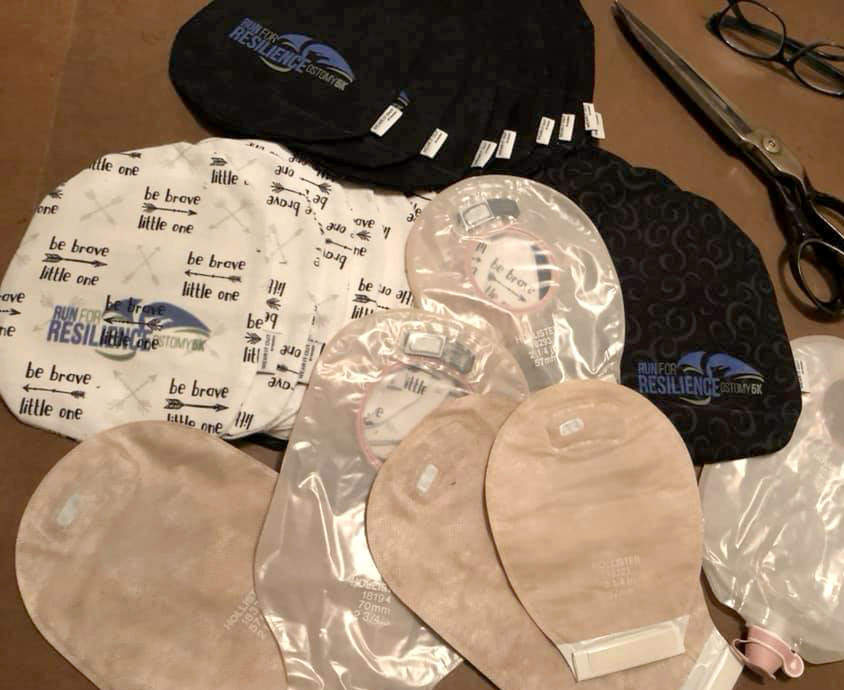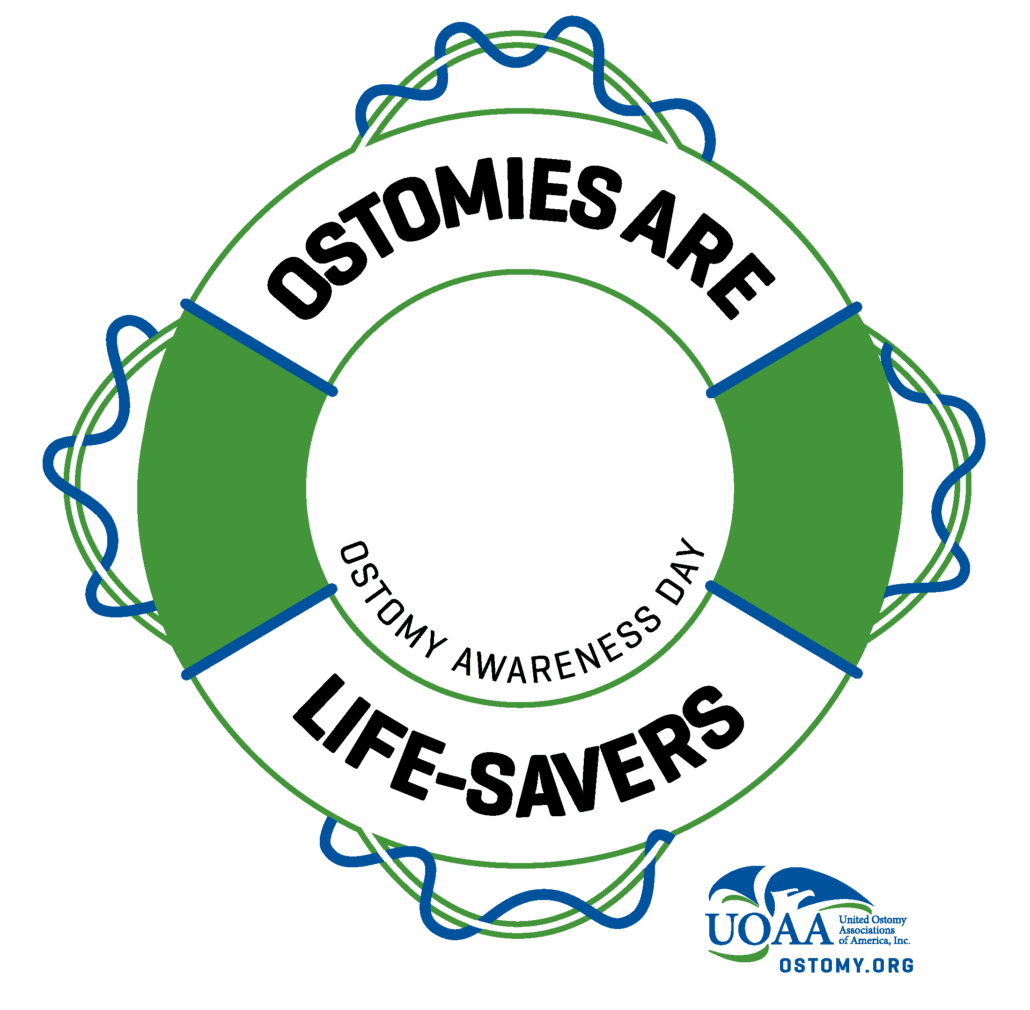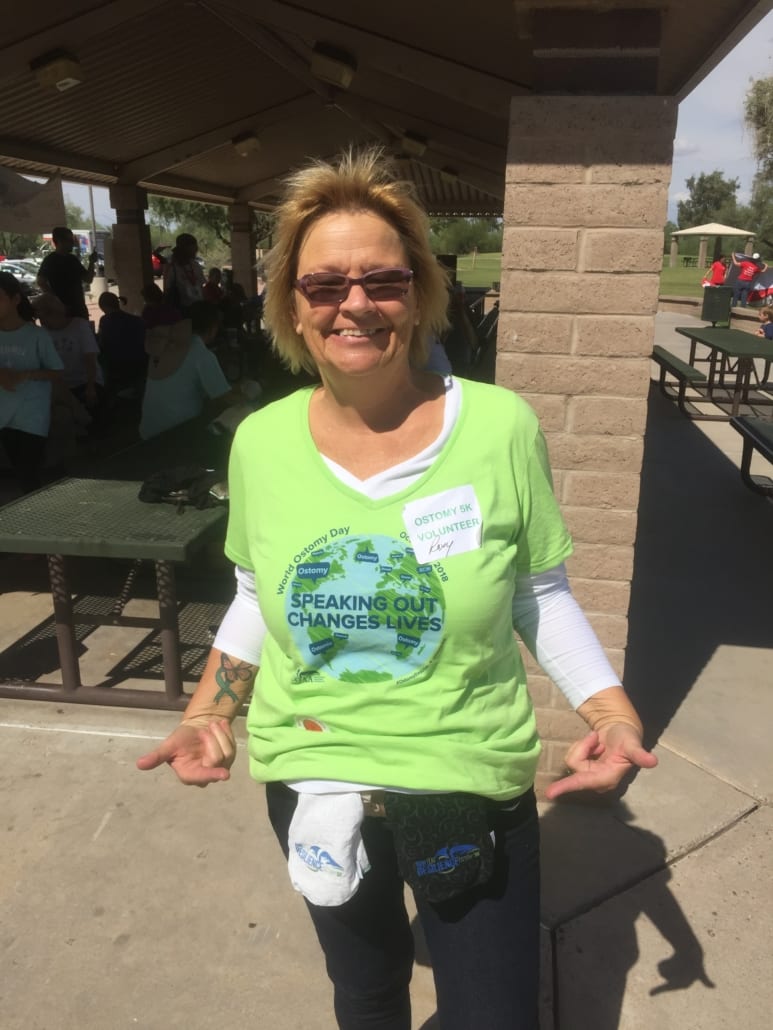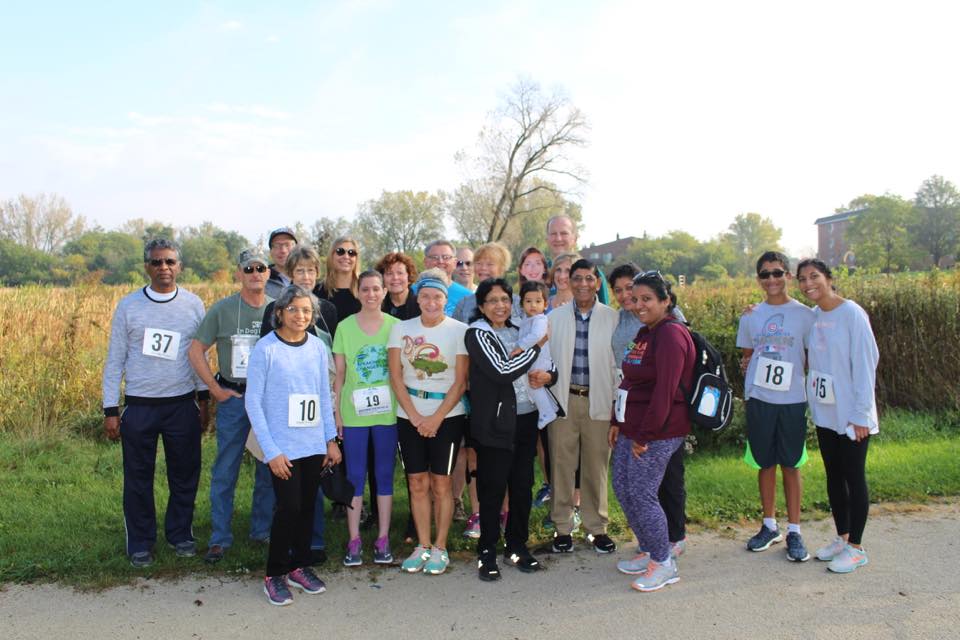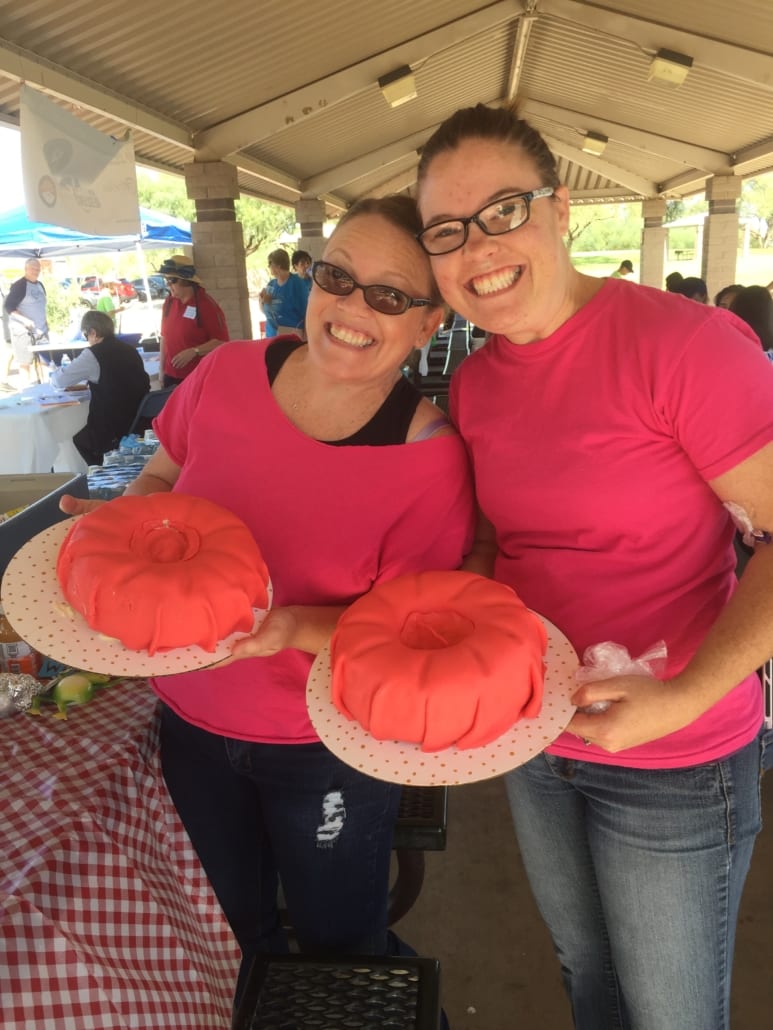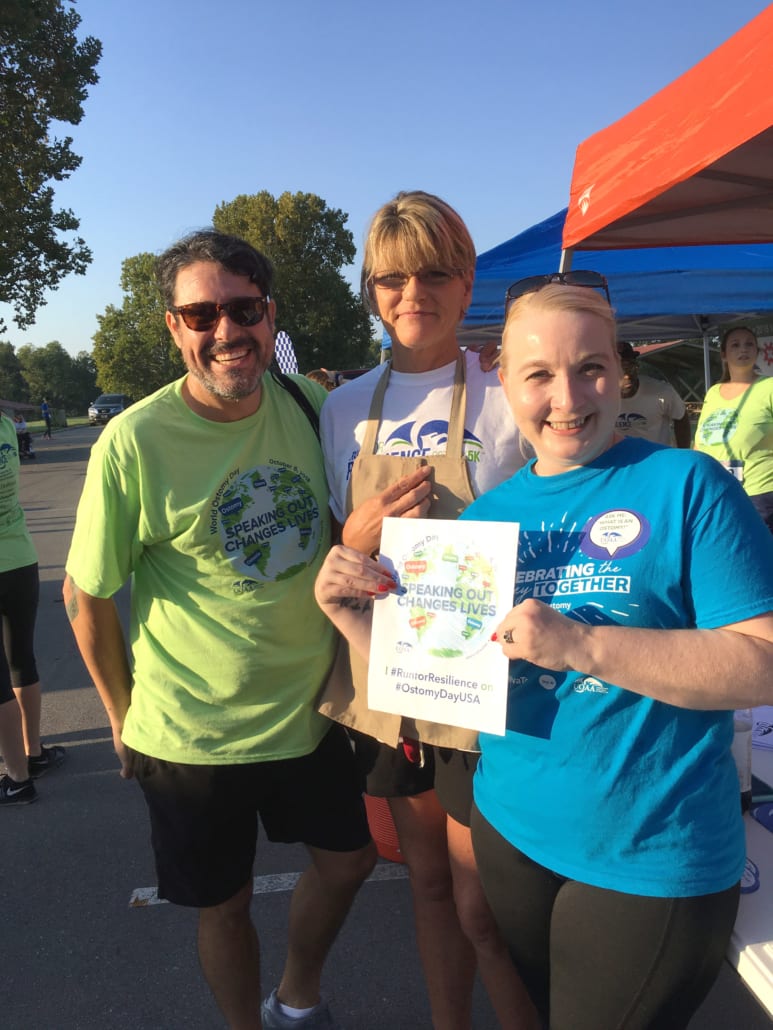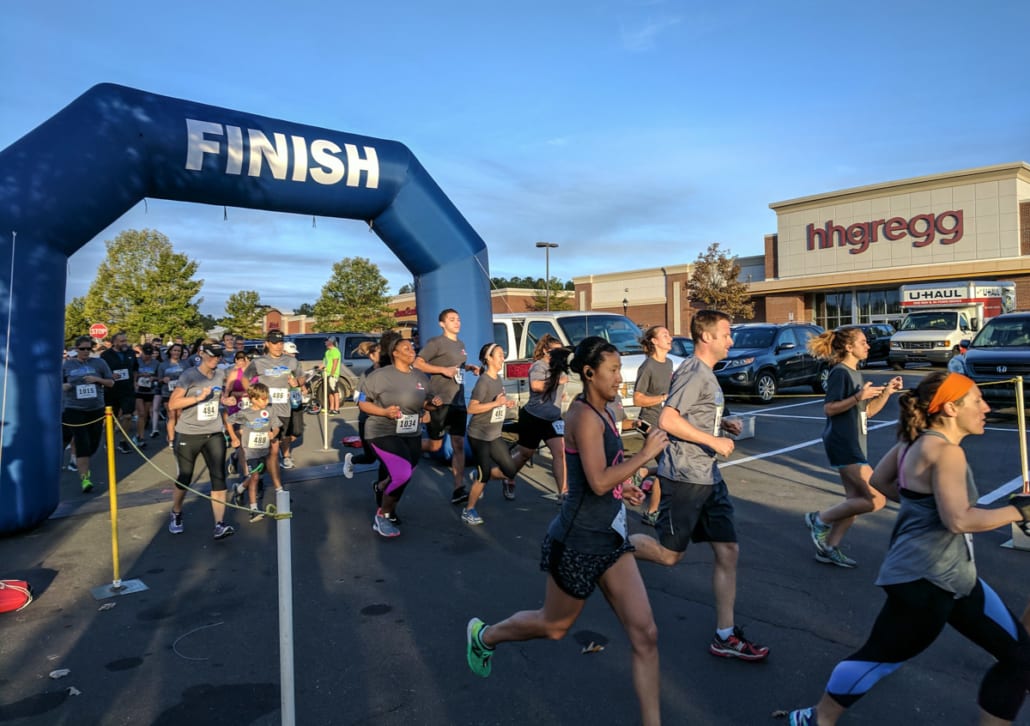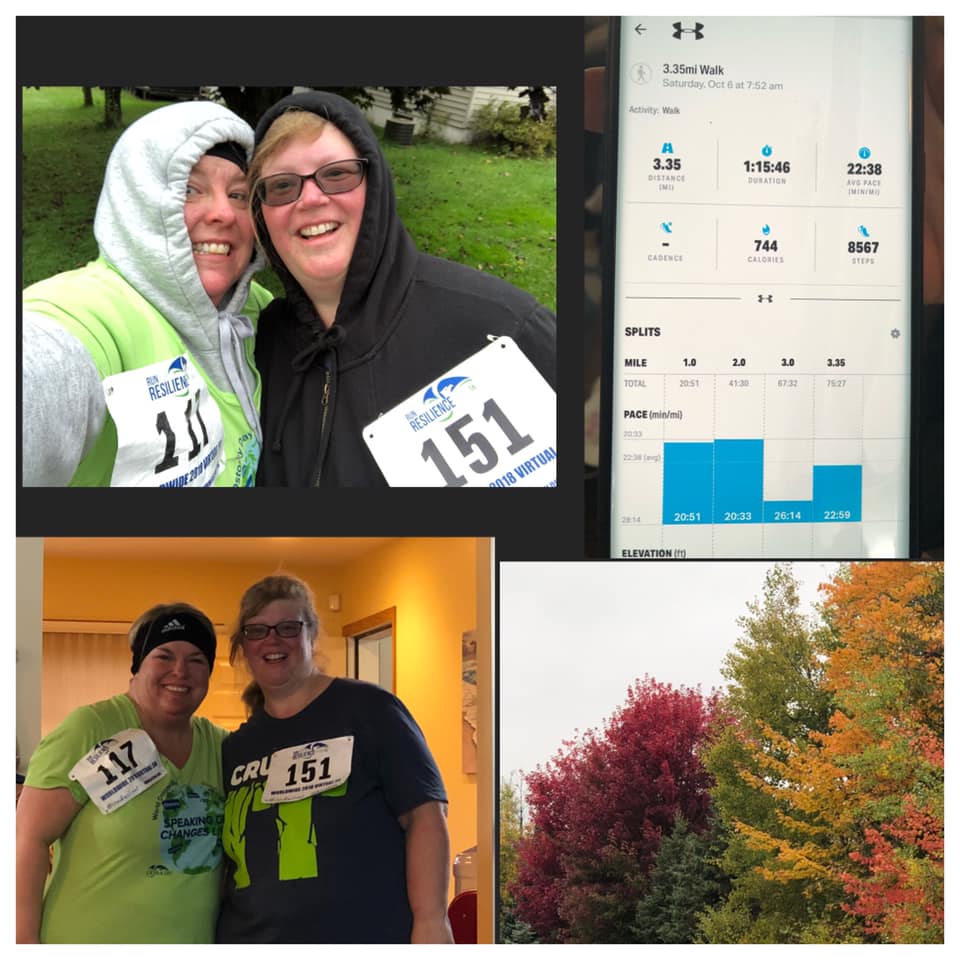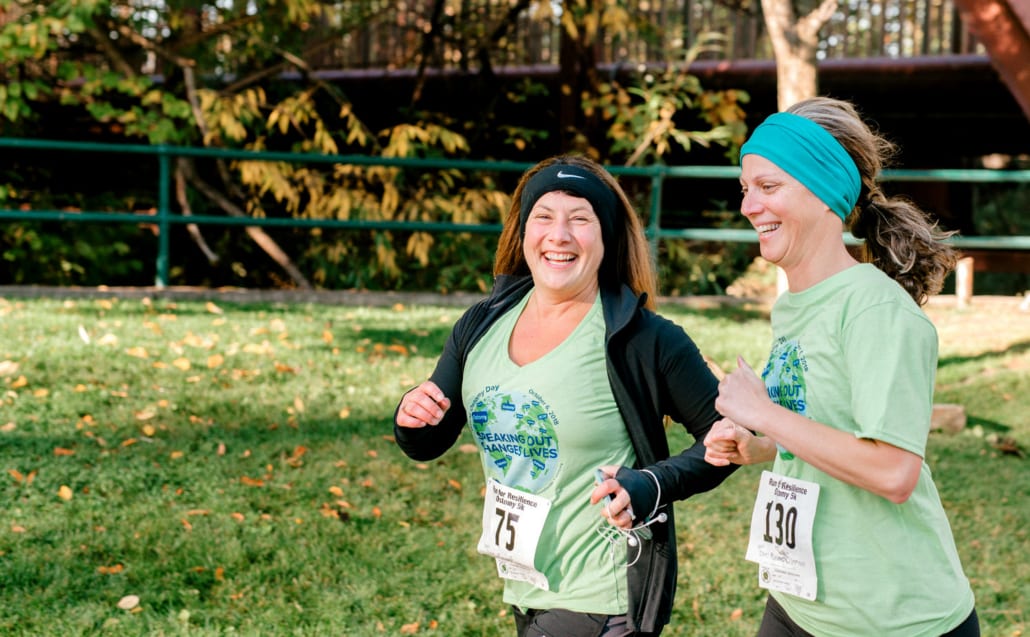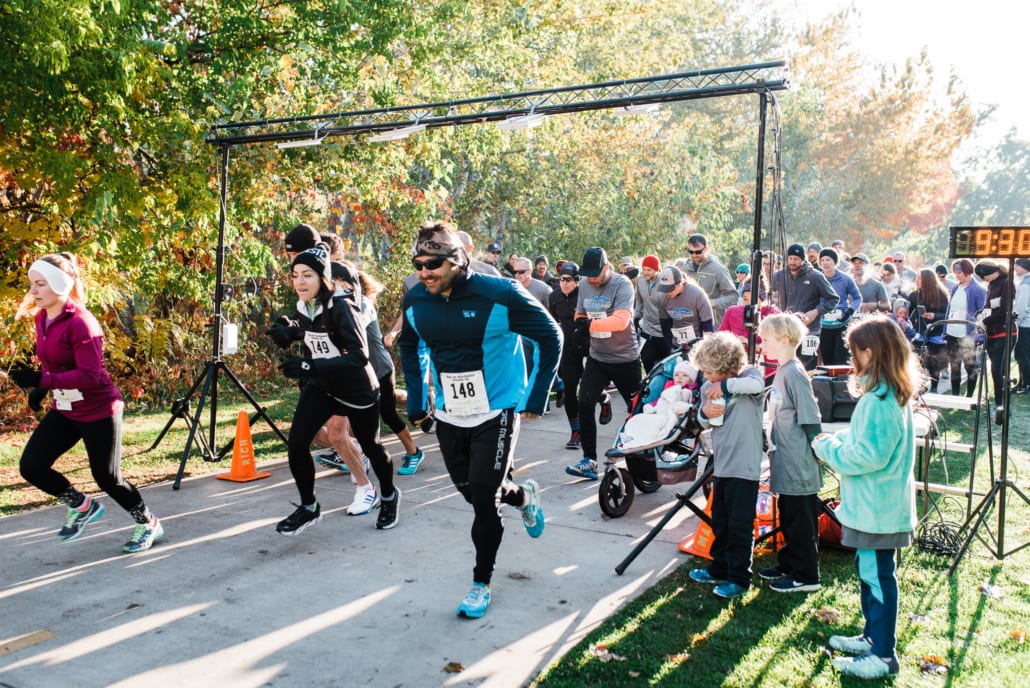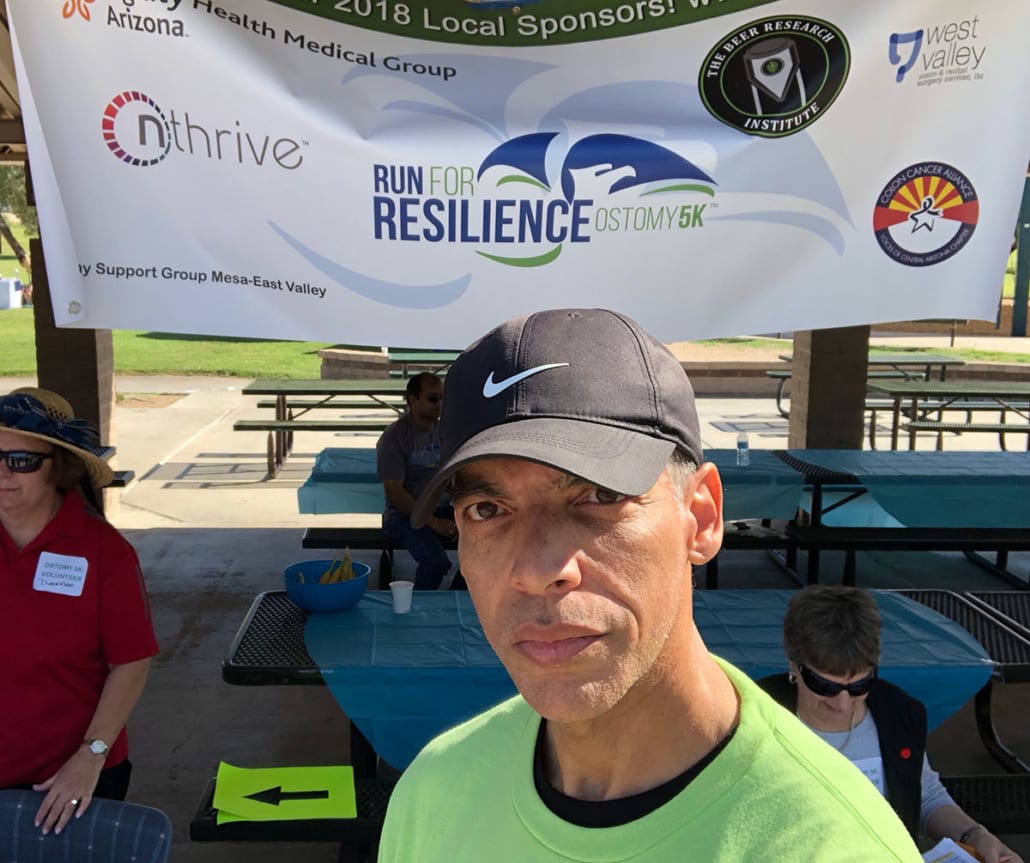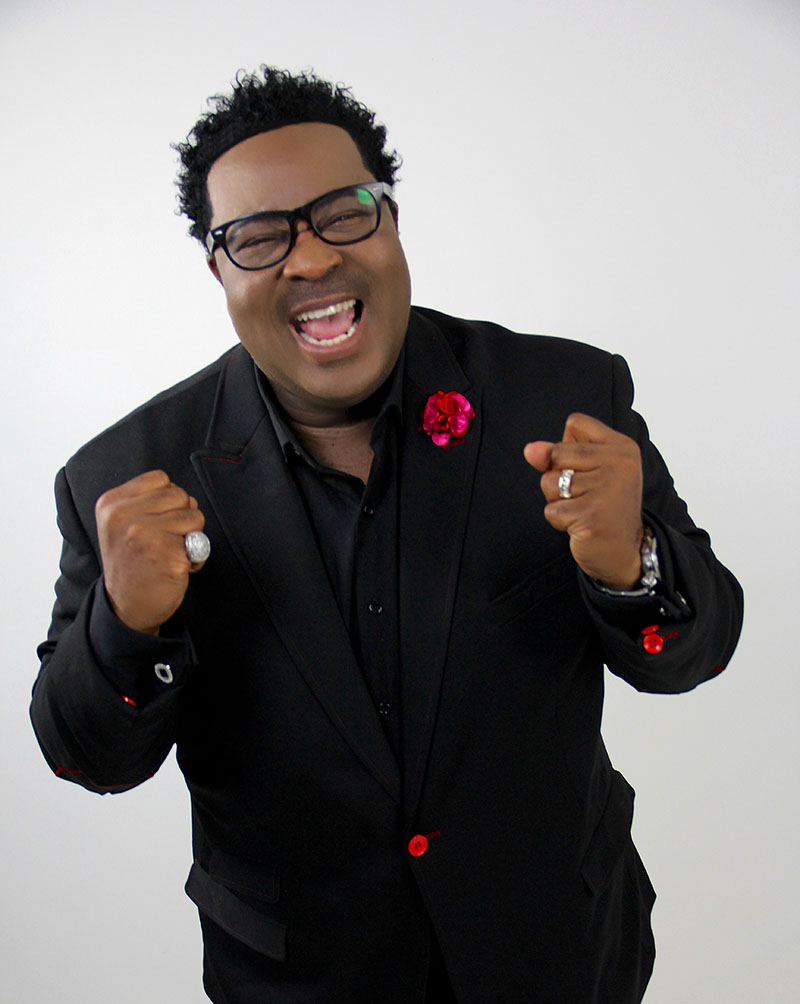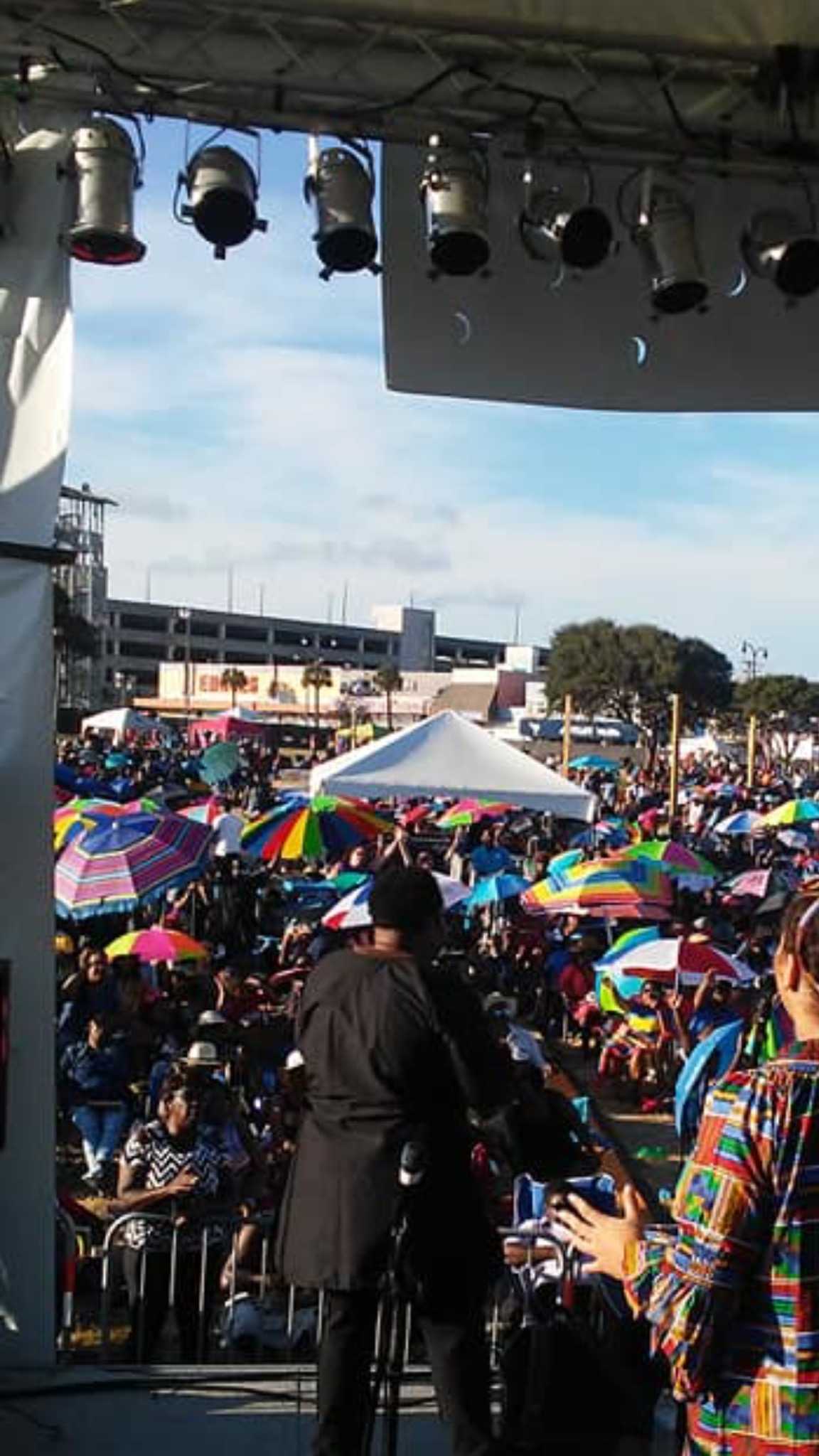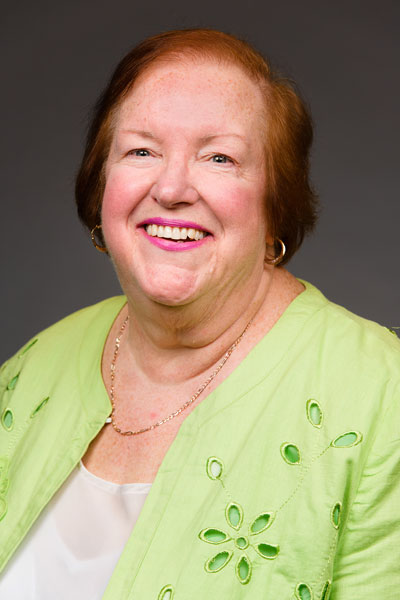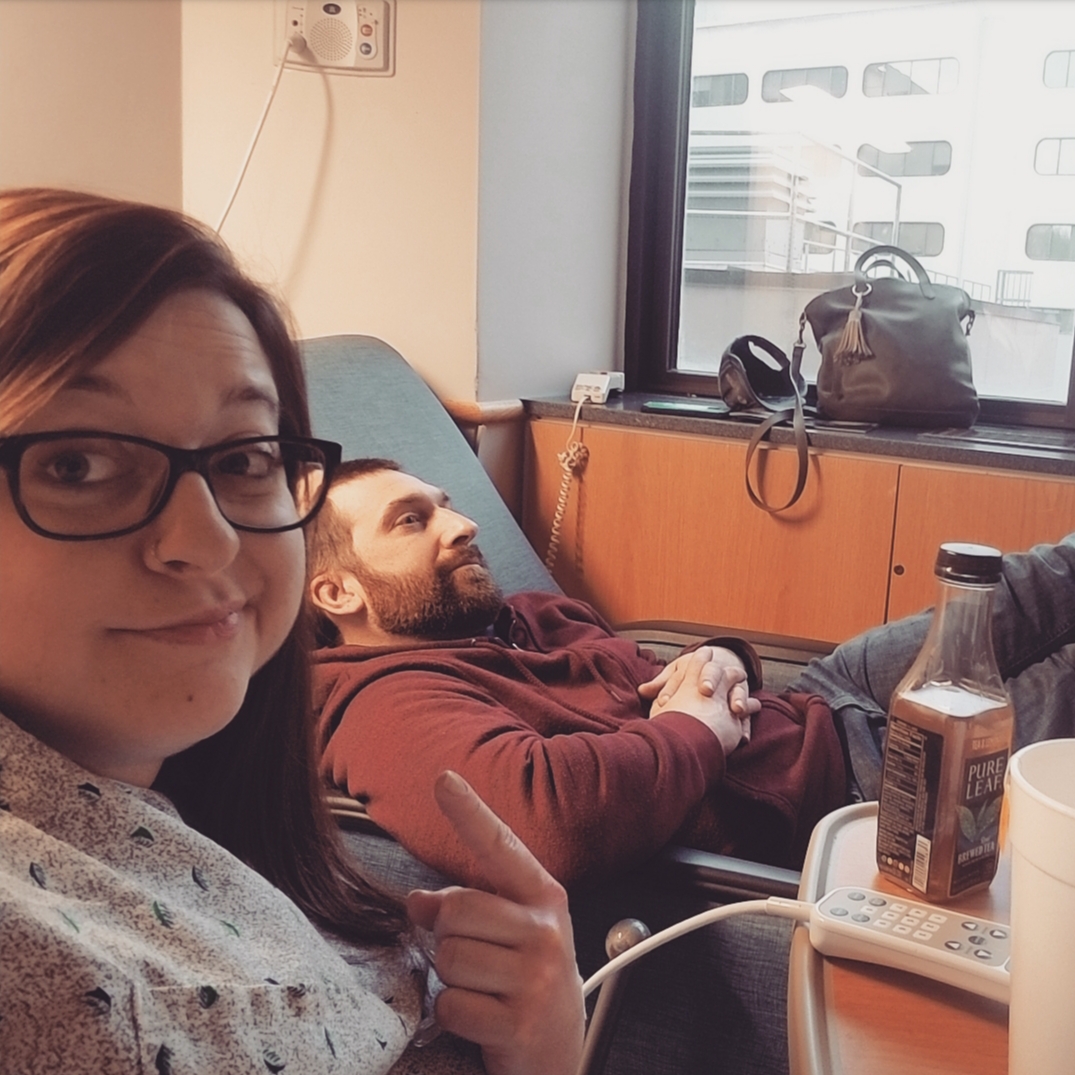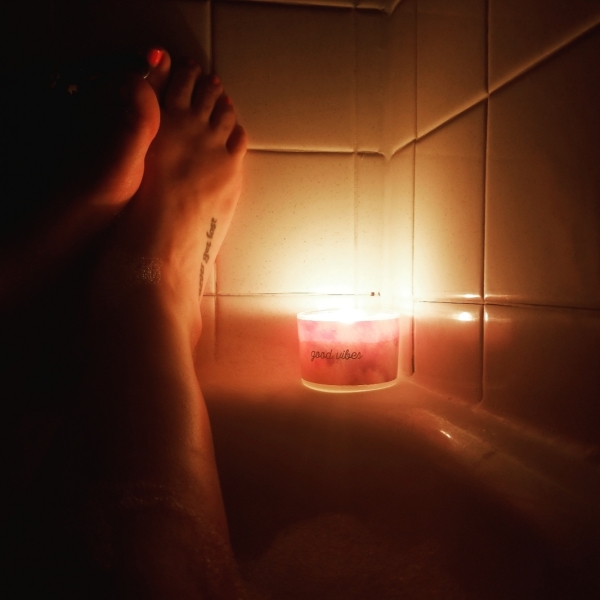I had been increasingly struggling with symptoms for over two years with medical personnel brushing me off because I did not fit the norms for bladder cancer and didn’t check off enough risk factors for it. By the time of diagnosis, at the age of forty, I was perpetually in pain and discomfort, I was periodically urinating blood clots and I was unable to sleep through the night due to the pain and frequent urination. I felt like I spent most of my time and energy running to the restroom. I even had one ED physician laugh at me and assume that I didn’t know my own body well enough to know whether I was urinating blood clots or having issues with my menstruation cycle.
I had my urostomy surgery on September 23, 2016 after receiving a bladder cancer diagnosis on August 12, 2016. I had Stage IV Bladder Cancer with a T4, muscle-invasive tumor.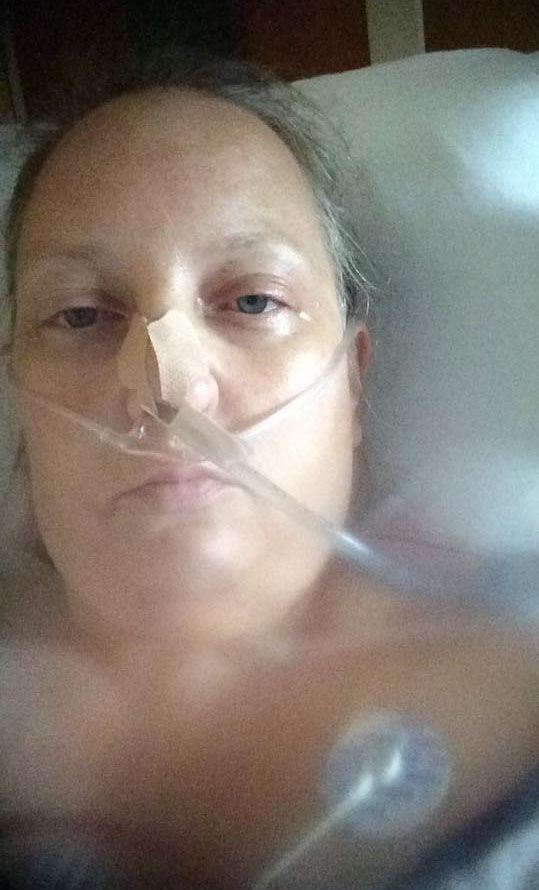
Having my surgery has allowed me to get back to my own life and start living again…mostly without pain. I’m able to sleep through the night again and I do not spend most of my time running to the restroom.
I have been working in a pediatric GI office since 2012, so not only was I aware of ostomies and that a person could live a long, productive, great-quality life with an ostomy, I also had my very own personal ostomy support crew. My coworkers are amazing and have been so supportive through everything…several nurses have even given me ostomy/stoma care tips and helped me address potential concerns. One nurse, a true-blue friend, even helped me change my bag a couple of times when I first had my surgery and was in rehab!
Finding Support
During my chemo treatments, I first started looking at online resources and started reaching out. I remembered that my WOCN told me there was an active local ostomy support group. It wasn’t until November 2017 that I was physically able to make any meetings in person.
Encountering the Greater Cincinnati Ostomy Association GCOA was the best connection I could have made post-everything. I originally tried to connect with people through the American Cancer Society and the Cancer Support Community, but bladder cancer is sort of a red-headed stepchild of the cancer community. It affects many on a number of levels, but NO ONE talks about. Not everyone diagnosed with bladder cancer has to go through the extreme treatment measures I did, so there are varying experiences within the diagnosis. However, going to the local cancer-focused groups was very frustrating and discouraging for me as most of the people I met there were breast cancer survivors whose experiences did not have any similarities to my own. There were no local bladder cancer-specific groups in my area and there still are not.
When I finally connected with UOAA/GCOA, I found more understanding, empathy, compassion, and comradery in the first meeting than I had in several with the cancer organizations. People definitely made the difference. Online support was okay, but even there I was sometimes frustrated with the set up because it too easily turns into a forum for sharing memes and complaining about their situations. There’s not a lot of educational conversations or intellectual discussions about what I was experiencing, which was something I was craving.
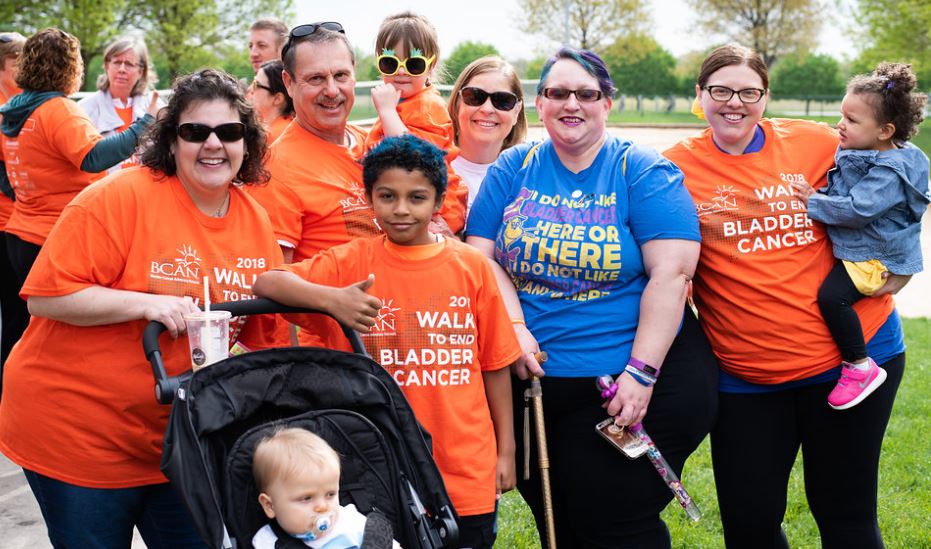
Becoming Active Again
I am still experiencing neuropathy in my feet and ankles as a side effect of the chemo treatments that I will probably deal with for life and I am still working on getting my strength and energy back, but I am gradually reclaiming everything that I did before. I fell shortly after my last chemo treatment and spent about 3 weeks in the hospital/rehab before getting discharged on a Friday and returning to work the following Monday because I had exhausted all of my medical leave and it was either return to work or lose my job. I did not want to deal with the stress of job hunting after all I had been through and going on disability indefinitely was a luxury that I could not afford, so I returned to work completely bald and using a walker. The first day back, I could barely make it from the front door to my office chair. Still, returning to work was one of the best things for me because it forced me to have to rebuild my strength and be active.
I now work 40+ hours a week again with a team I love supporting and I volunteer with the GCOA and Hughes High School, my alma mater, as much as I can. I took over the presidency of the GCOA back in January. I still live alone on the 2nd floor of my quaint, inner-city, 2-bedroom apartment. I enjoy spending time with friends and extended family. Last May, I rented a car and went on a road trip by myself to Columbus, OH to participate in the BCAN Walk to End Bladder Cancer and catch up with some amazing people that I have in my life. I will be taking a plane and train trip in August to attend the UOAA National Conference and go on vacation in upstate New York afterward. I am finally able to start walking and being a bit more active again and have started trying to figure out how to do some of the higher energy things I used to do (like dancing and workout videos) despite the neuropathy, which sometimes makes it hard for me to coordinate my feet. It’s all a process though and I try to take it one day at a time. I’m hoping to be able to take a trip to Argentina in 2020…your attitude and determination are what makes the difference and I’m determined to accomplish things that I have always wanted to do despite the obstacles I’ve had in my past.
Raising Awareness
Both bladder cancer and urostomies are extremely rare and there are huge discrepancies in diagnosis and treatment of bladder cancer, especially with women and minorities. It has been really important to me to bring awareness to both issues because I truly believe that lives can not only be improved, but saved by advocating, educating and raising awareness of bladder cancer and ostomies. So many people immediately think that having your bladder or part of your colon is going to end life as they know it. In part, they are correct, but not in the way that most people think at first thought. People with ostomies can live long, productive lives and be amazing leaders in their communities…just like anyone else. Just because you will always have a medical condition that requires the use of medical equipment does not mean that your life is over. It is different, that’s all. We’re all different though, having an ostomy just makes you extra special.
When my urology oncology surgeon told me that he wanted to remove my bladder (along with various other abdominal parts), I didn’t hesitate at all and said, “Okay. So what’s next?” I knew that my life would be over if I didn’t get an ostomy and I knew that my life would not be over with an ostomy. It was one of the easiest medical decisions I have ever made. He could have asked me if I wanted a cup of coffee it was that easy. That doesn’t mean that I didn’t have struggles and the journey wasn’t a challenge because I did and it was, but I am grateful that I had a choice of life or death and that I was able to choose life so I could get on with mine. Raising awareness for bladder cancer and ostomy awareness means that I could help someone make that life-saving decision that much more quickly and that they would be able to move onto healing and gratitude that much more quickly, instead of being bitter, pissed and depressed over losing a non-essential piece of themselves.
I have raised money, made social media posts, written articles, blog, had discussions, and encouraged others to go outside of their comfort zone to seek support. Additionally, I fairly quickly began being more involved with my local ASG and am committed to thinking outside the box and expanding opportunities to reach people where they are at and, hopefully, encouraging to become/remain involved and to share their own stories.
Staying Positive
I’m alive! I’m not in constant pain and discomfort. I can sleep through the night and not be up every 10 minutes to go the bathroom. I don’t have to do that “gotta go” dance while standing in line for the ladies’ room. I can hook up to my Foley for long trips or binge-watching and not have to move for hours. My bladder does not interrupt me in the middle of the best scenes when I go to the theater. I’m able to concentrate again. I can relieve myself while standing up or writing my name in the snow (gotta see a little humor in the situation)! 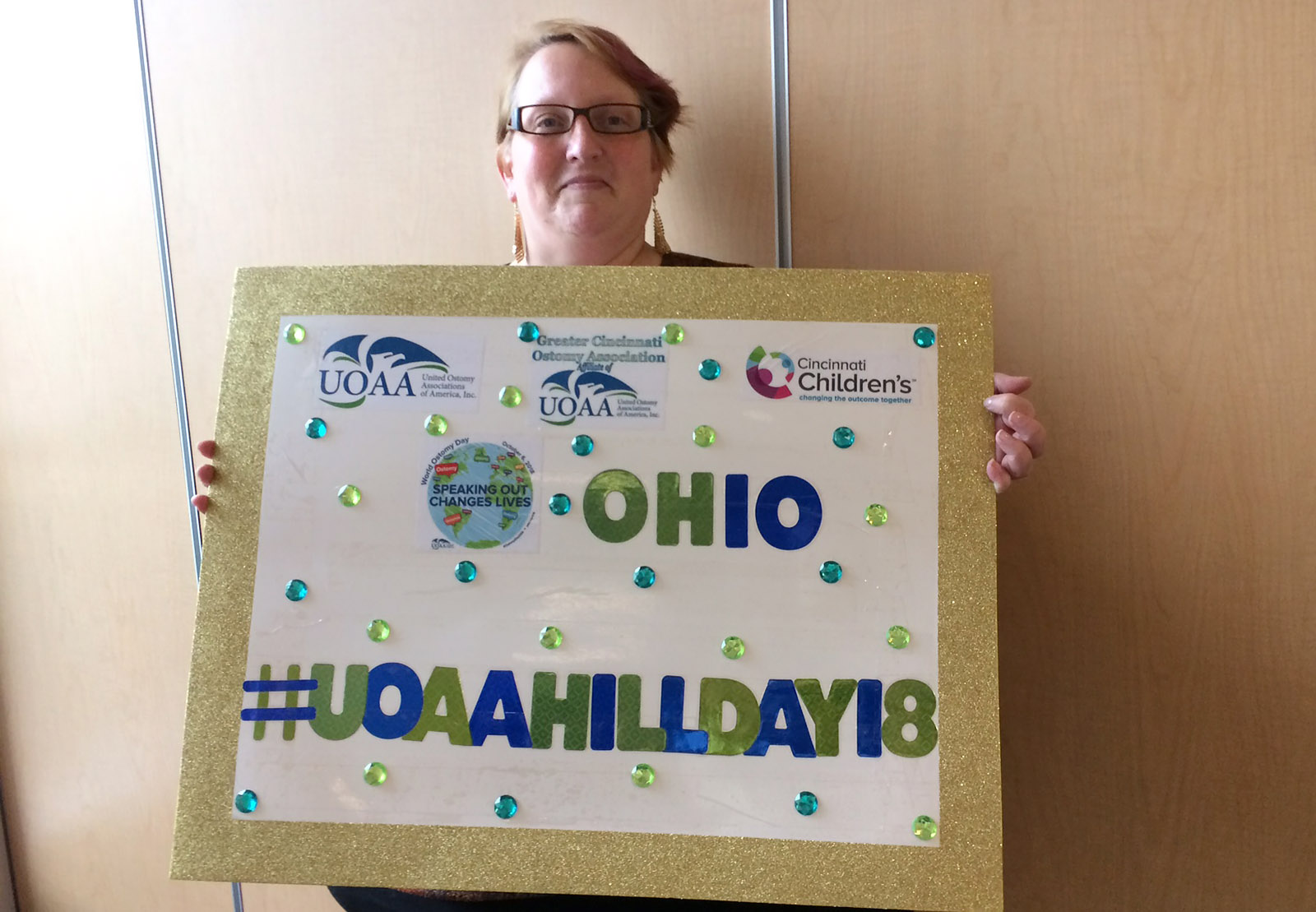
My advice is to just focus on living your life. The closer you get to doing everything you did before, the more positive the picture of life with an ostomy becomes. Yes, you can live without those parts and you can still be an active person. Your life and your dreams are still unlimited…it just might take a little extra preparation and planning, depending on your personal diagnosis and situation, but real life and real dreams take hard work, no matter who you are! You have to work for the things in life that you want anyway…no matter who you are or what your circumstance is, but the harder you have to work for something, the more worthwhile, valuable and meaningful it is to you. Only you can make the decision on how meaningful you want your journey to be though.
Overcoming Challenges
Most of my challenges are from my cancer treatments and not from having an ostomy. Still, bending and twisting are sometimes challenges. I do have a hernia that I way too quickly achieved by sneezing and, although it does not typically bother me, it is something to keep in consideration when I am trying new movements or lifting heavier objects. I have neuropathy and slight hearing loss as side effects of my chemo treatments and those are more annoying and challenging than my ostomy issues. Every once in a while, I have a leak, but I generally carry at least a few supplies with me so I just try to catch it quickly, change and move on. I’m really fortunate to have amazing friends, family & coworkers who are really understanding and supportive when these things happen and they don’t bat an eye when I need to deal with these things. Overall, I’ve pretty much learned to have a new definition of “normal” and I take things day by day and slow down when I need to and, most of all, when new things come up, I TRY instead of just giving in.
Advice for those who may need ostomy surgery?
Don’t think twice! No, it isn’t always easy and it isn’t always an easy choice. Sometimes, it’s all very hard. Yes, life will be different, but, in the long run, it’ll be worth it and at least you will still have a life to live. If you give the ostomy and yourself a chance, having an ostomy will ultimately give you a better quality of life. Also, don’t be afraid to reach out to others who have had similar experiences…that’s how you get through the challenging moments, days, and weeks. Also, I feel like it is critical to share your own story in some way, shape or form. Not only does it help others get through their situations, but it is a great way for you to heal and get through your own story. Sharing your story is a way of honoring yourself and allowing you to shed light on your own strength because many times you don’t realize just how strong you are. Martin Luther King, Jr said, “Our lives begin to end the day we become silent about things that matter.” Keeping your story bottled up inside and not even sharing it with the people you love is detrimental to your journey. You matter and so does your story, so share it.
Making a Difference
Last year, I hosted a virtual Run for Resilience Ostomy 5k walk locally and I had 6 humans and a canine share in a beautiful day at a local park. It was great to share my story with people who hadn’t heard about it before while walking. Prior to my own surgery, my team at work and I would wear blue and green on Ostomy Awareness Day in support of the patients and families we care for.
I have grown up participating in similar events and have always found them inspiring and empowering. This year, we hope to have even more participation and invite everyone to meet at a group meal afterward. I will be attending my first UOAA National Conference in August and I’m excited to make new connections and learn more information that will enable me to assist others in getting back into life after receiving an ostomy. I would like to see others get involved in these events because it gives them connections, information, support and empowerment. There is no substitute for making connections in real life with people who have tackled the same problems, fought similar battles, and, most of all, WON. There is strength in numbers and we are all stronger together.
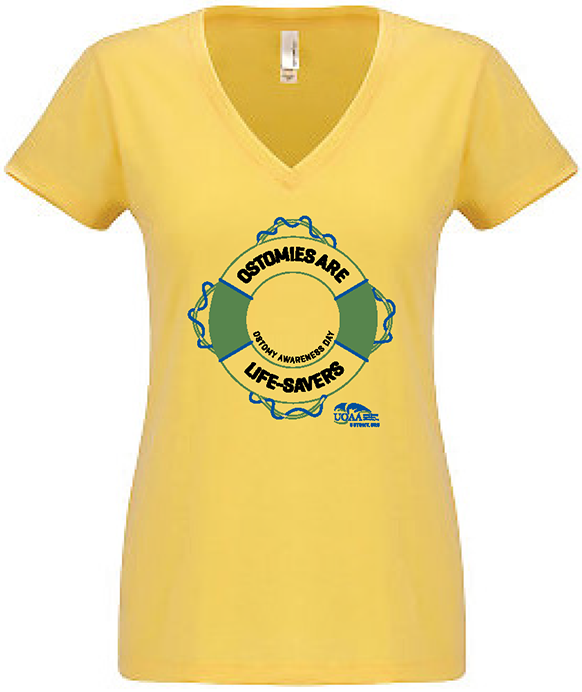
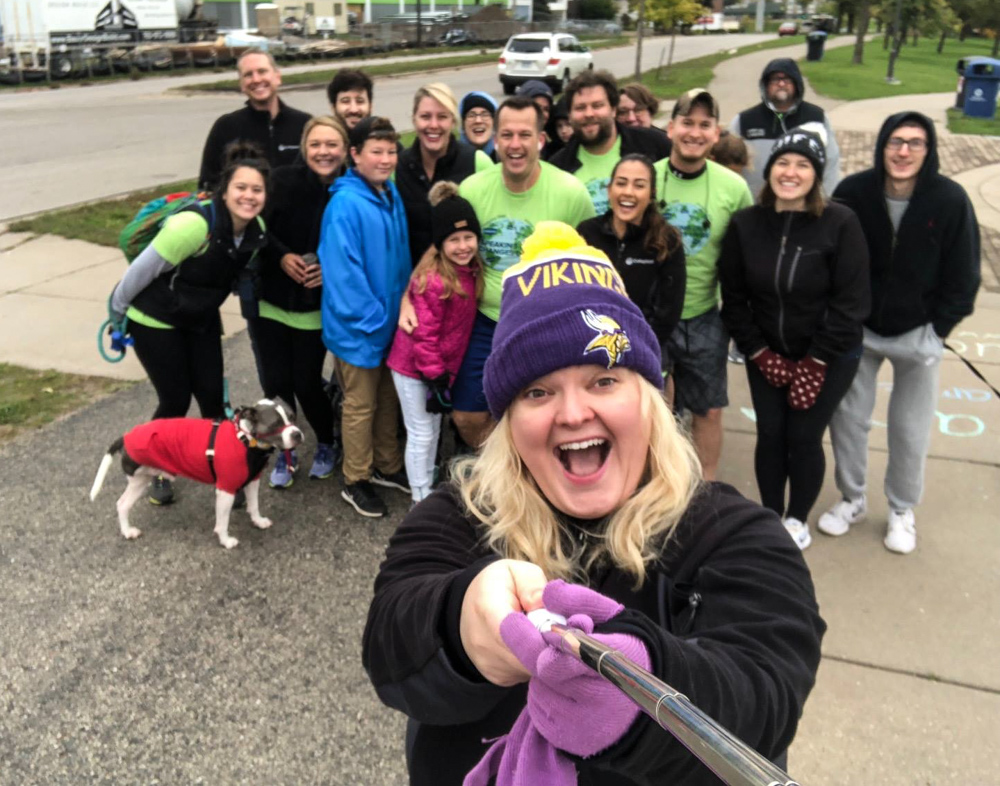
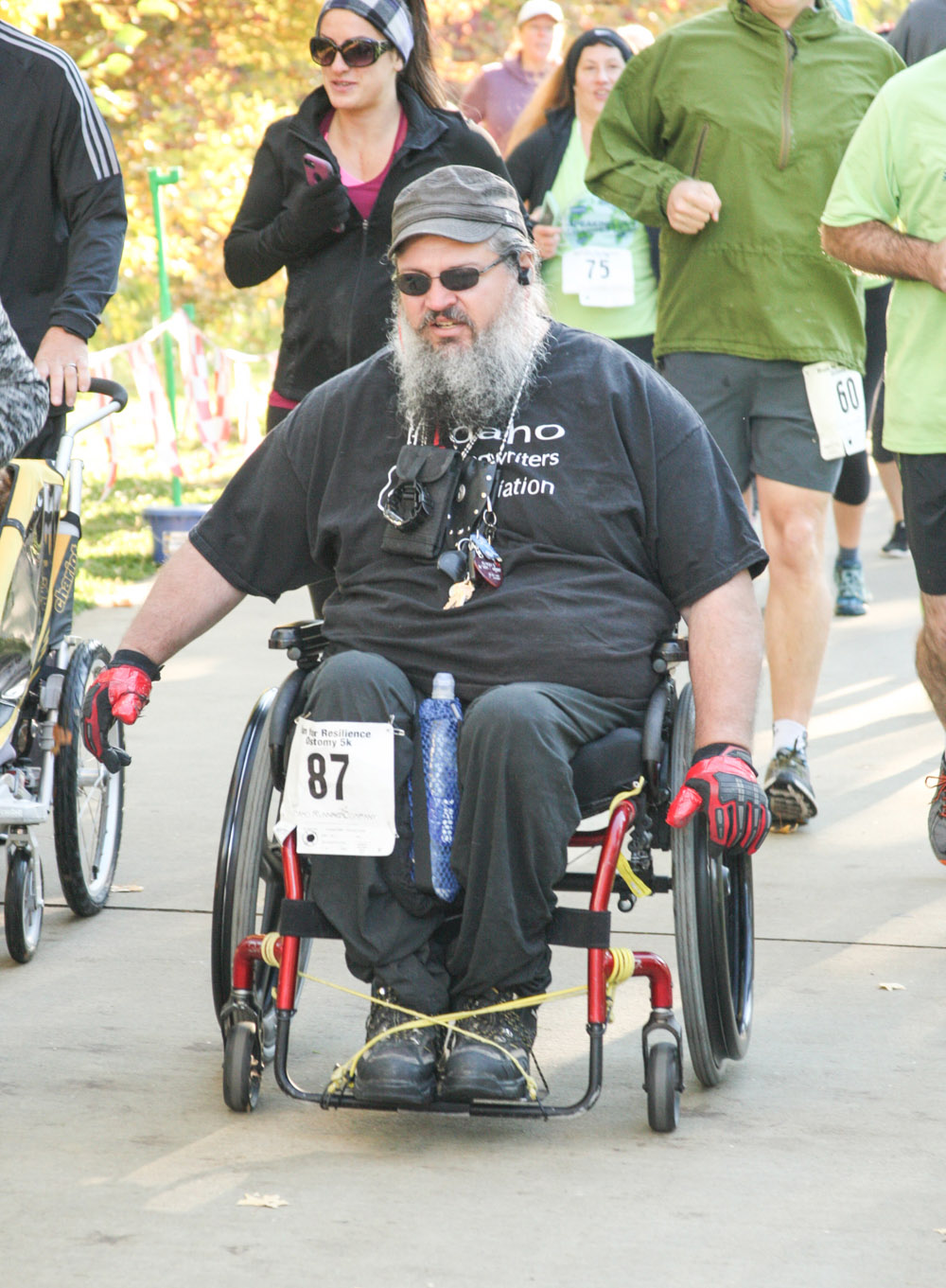 is mission. They volunteer, have reps, products and information on hand. Exclusive Diamond Sponsor Hollister will have employees in Stuarts Draft, VA that will be running in solidarity. Gold Sponsor Coloplast’s Vincent Faiola, who is also a support group leader, is gathering the ostomy community for an event in Vancouver, WA. Silver Sponsors Byram Healthcare and Colo-Majic are excited to connect with you and support the cause. Bronze Sponsor Safe-n-Simple’s Michele Pitylack and Holly Loos are hosting an event in Michigan and promoting the event nationwide. Bronze sponsors ConvaTec will also be on hand at the events to answer your questions and new sponsor Osto-EZ-Vent is proud to be a part of this event. And thanks so much to our local sponsors who do so much for the community spirit of these events.
is mission. They volunteer, have reps, products and information on hand. Exclusive Diamond Sponsor Hollister will have employees in Stuarts Draft, VA that will be running in solidarity. Gold Sponsor Coloplast’s Vincent Faiola, who is also a support group leader, is gathering the ostomy community for an event in Vancouver, WA. Silver Sponsors Byram Healthcare and Colo-Majic are excited to connect with you and support the cause. Bronze Sponsor Safe-n-Simple’s Michele Pitylack and Holly Loos are hosting an event in Michigan and promoting the event nationwide. Bronze sponsors ConvaTec will also be on hand at the events to answer your questions and new sponsor Osto-EZ-Vent is proud to be a part of this event. And thanks so much to our local sponsors who do so much for the community spirit of these events.

